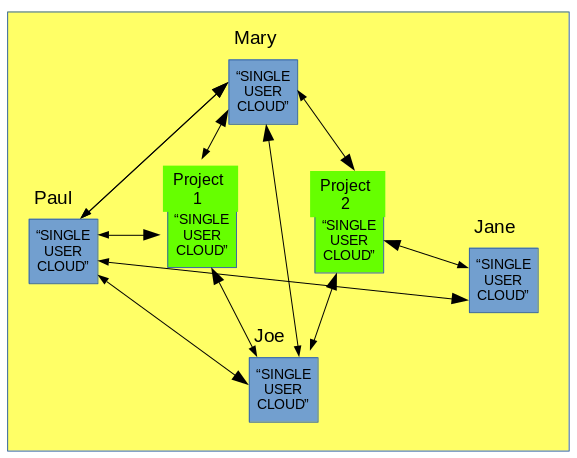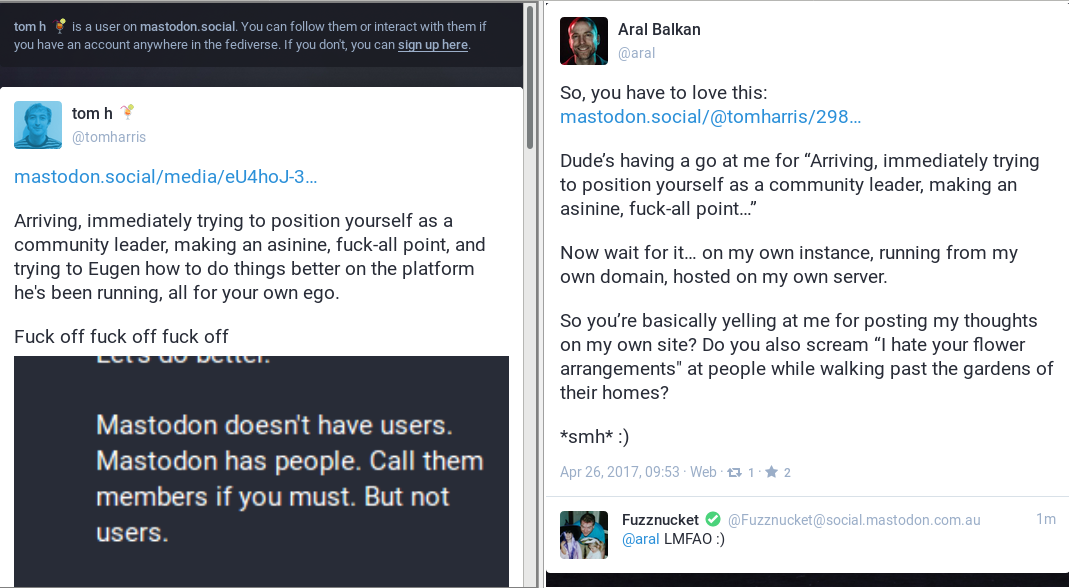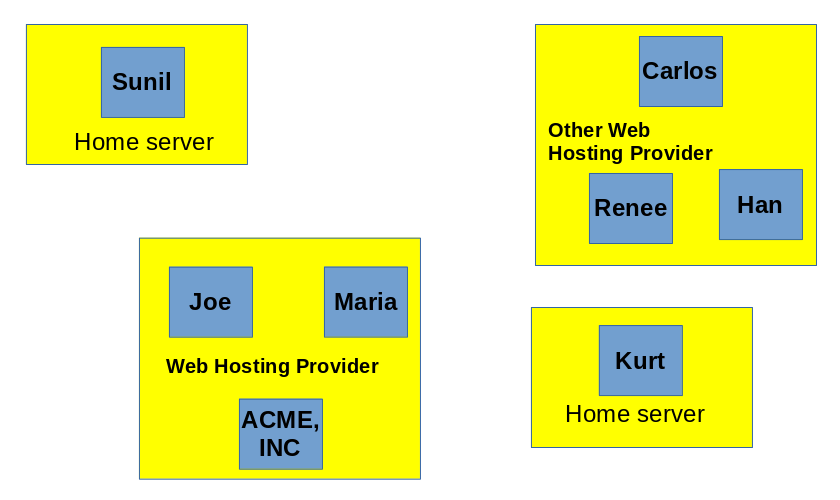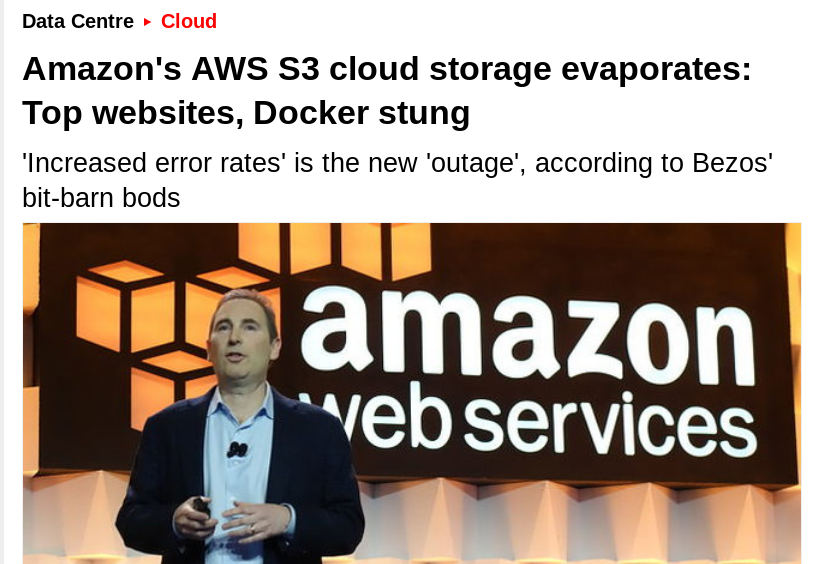All Posts
Individual or collective clouds? Both, of course
Yesterday, I presented what I consider a perfect confirmation of my views on “Twitter replacements”. Today, I “defend” that position from “accusations” of individualism.
Mastodon has no users, nor people. But people (can) have Mastodon
I just saw on Twitter and his “replacement”, that is Mastodon, something that in my opinion is a perfect, real-world confirmation that, as I recently said, certain worries about Mastodon flaws and alternative “platforms” are… misplaced. Please have a look at this screenshot:
Mastodon is a problem only if you want it to be a platform
I just found online what is, in my opinion, another proof that certain concerns about the “Twitter replacement” called Mastodon are solid… but the solutions that get the most attention right now may be dead ends.
Nobody cares about online identities? Really?

Reading my recent posts about “Mastodon flaws"that are NOT flaws and online identities in general, an online contact of mine replied with several comments, whose main points I believe may be synthesized as follows (any error here is mine, of course):
After Yahoo, it's Amazon's turn to show why a percloud is needed
On February 28th, 2017, a “cockup at Amazon facility in Virginia, US” caused its S3 cloud storage to fail. This fault led to “major websites and services - including Imgur, Medium, Trello, Yahoo webmail, the Docker Registry Hub.. falling offline, losing images, or left running like treacle. Basically, that outage “knackered half the internet, it seems, because it all relies on S3 to store data online”. Just to stress: this is one S3 region that has become inaccessible, yet web apps are tripping up and vanishing as their backend evaporates away.
Yahoo, or why geeks need to give ALL their friends a PERSONAL email server now
By now, you probably already know that Yahoo scanned customer emails for U.S. intelligence", and if you haven’t you can read all the details in the previous link, or in many other places. Here, I only want to





